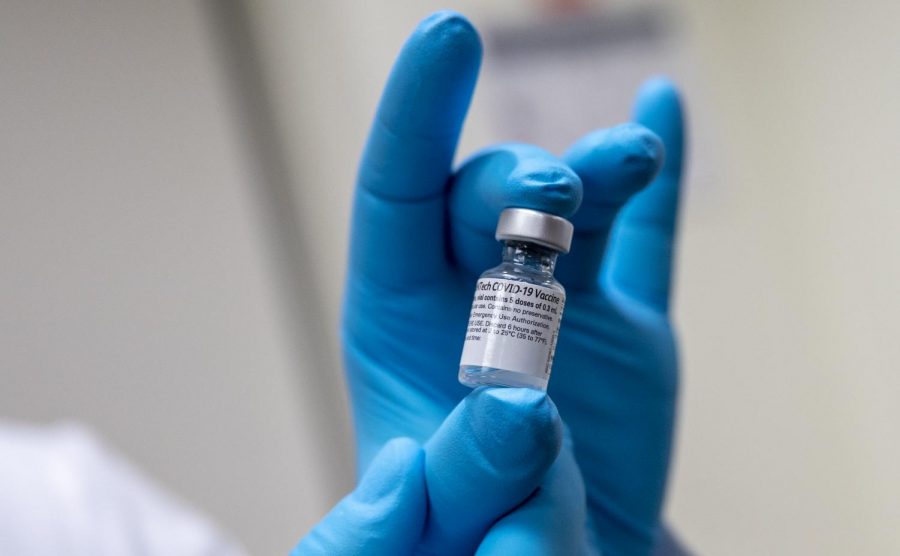COVID-19 vaccine update
Pfizer-BioNTech COVID-19 vaccine
January 26, 2021
Amidst the COVID-19 global pandemic, vaccinations for the virus have finally been created and have been distributed to various tiers of people over the last couple of months.
Receiving the vaccine has some benefits, but according to the Mayo Clinic, there is no way to know how the vaccine will affect each individual. As more research is conducted, the topic of the COVID-19 vaccine is constantly changing.
The names of the vaccine being distributed are Pfizer-BioNTech’s COVID-19 vaccine and Moderna’s COVID-19 vaccine. According to Pfizer, people over the age of 16 should and will be given the Pfizer-BioNTech vaccine.
While the vaccine is still in its earliest stages, people are still receiving doses for testing. Scientists began the first phase of trials for an experimental vaccine for the COVID-19 virus in mid-March of 2020, according to the National Institutes of Health. In the month since its approval by the Food and Drug Administration (FDA), there have been more than 46.2 million doses given to people. The most up-to-date average rate of distribution is 2.35 million distributed doses a day, according to the COVID-19 Vaccine Tracker. The COVID-19 Vaccine Tracker states that vaccine distribution began in the U.S. on December 14. Health care workers were providing people their doses of the vaccine. In the last week, an average of 806,716 doses per day were given to citizens.
According to COVID-19 safety, the FDA says common side effects in the trials involving 44,000 people have been: pain at the site of the shot, fatigue, headache, chills, fever, and joint and muscle pain. Vaccine doses are being provided at hospitals, doctor offices, and pharmacies. According to Get Vaccinated, people can get the best information about the vaccine from their doctor’s office. If you are not sure about the vaccine you can do your own research or you can contact your doctor’s office to discuss your options.



